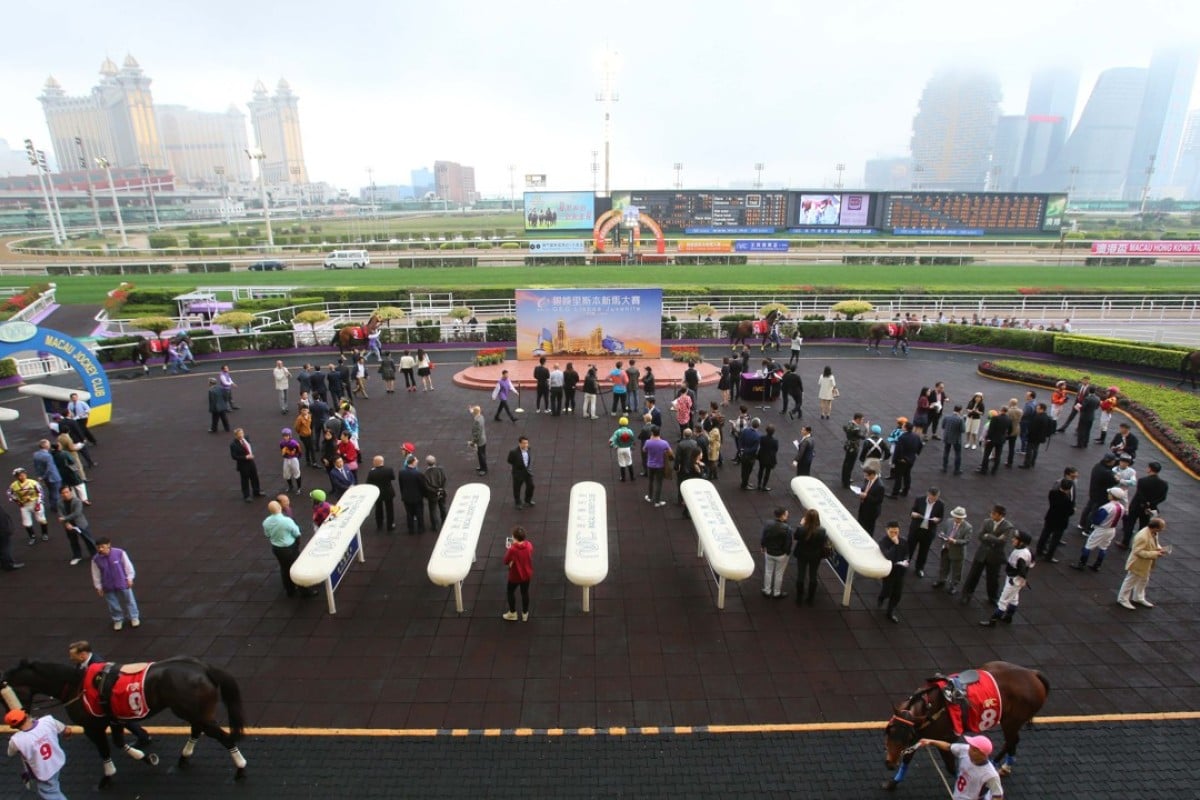Macau’s controversial Canidrome greyhound track will close in July but last week the Macau Jockey Club was assured it would not go to the dogs as well when it was granted a licence extension that ensures racing remains at Taipa until 2042.
The announcement brought much-needed surety and stability, but as the Macau Jockey Club (MJC) battles dwindling crowds and betting turnover – and the Hong Kong Jockey Club continues to prosper – can the sport return to its glory days on the other side of the Pearl River Delta?
“If you ask 1,000 people in the casinos whether or not racing exists in Macau, 999 wouldn’t know,” says horse trainer Geoff Allendorf, a veteran of the Macau racing scene who has witnessed first hand the rise and fall of the sport in the former Portuguese colony.
Final battle to save Macau’s exploited racing greyhounds
It is Macau’s biggest race day and the gaudy facade of the Galaxy casino looms through the mist and over the racecourse on a foggy Taipa day.
Blue and yellow bunting hang from the rusted balustrades of the grandstand, the top two levels of which are glassed in but empty, and small but stubborn banyan trees push through cracks in the concrete.
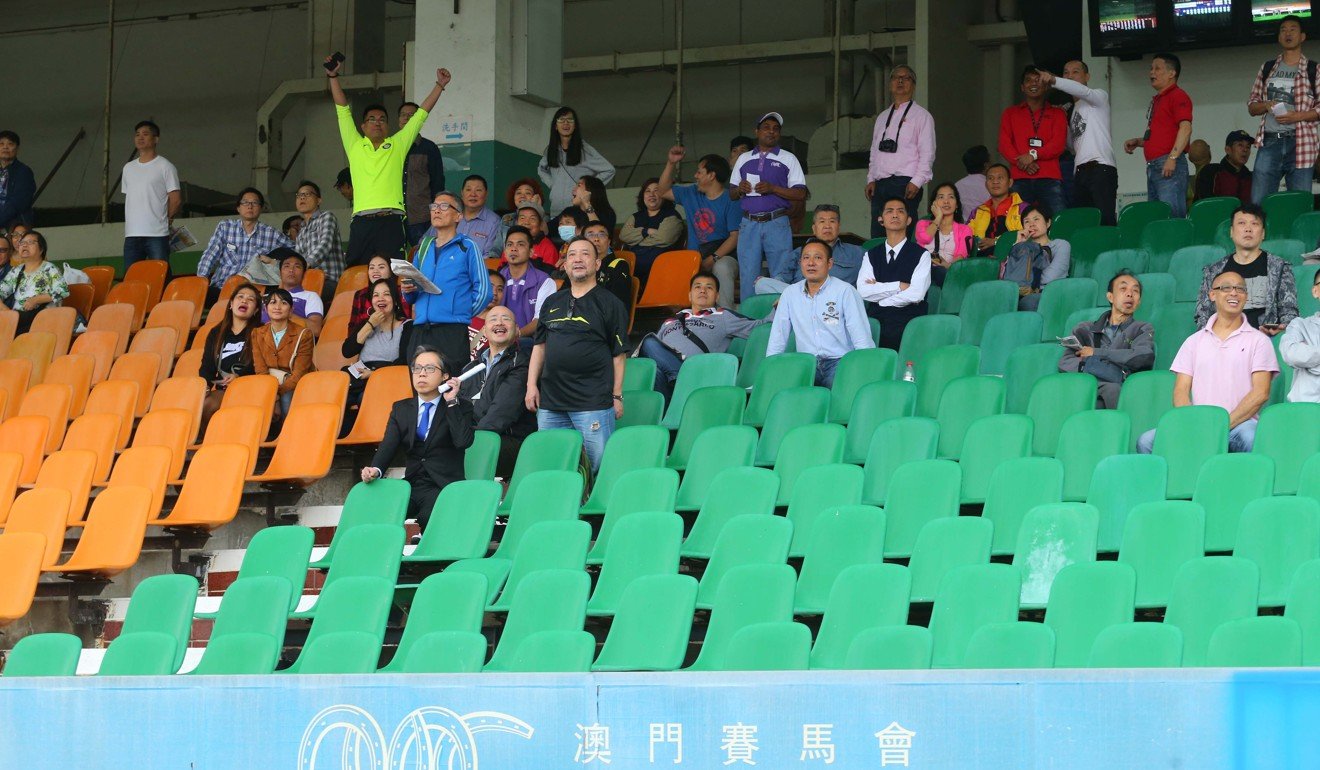
Allendorf first arrived in Macau as a jockey in the 1990s and returned as a trainer, when business was booming, the grandstands glistened, filled with fans, and betting was soon to hit a new high.
“We had quality jockeys, top trainers and big owners and we raced twice per week with 12 races per day, and when Hong Kong was in off-season we would race three times per week, with 28 races,” he said. “Those were the good old days, racing was great.”
There were ups and downs – and even a rumoured takeover bid from the Hong Kong Jockey Club that never eventuated – but in 2003 the horse population topped 1,200 and there were 1,200 races.
Both exceeded Hong Kong’s totals, and turnover topped HK$5 billion for one season, sometimes bursting through an impressive HK$100 million per race.
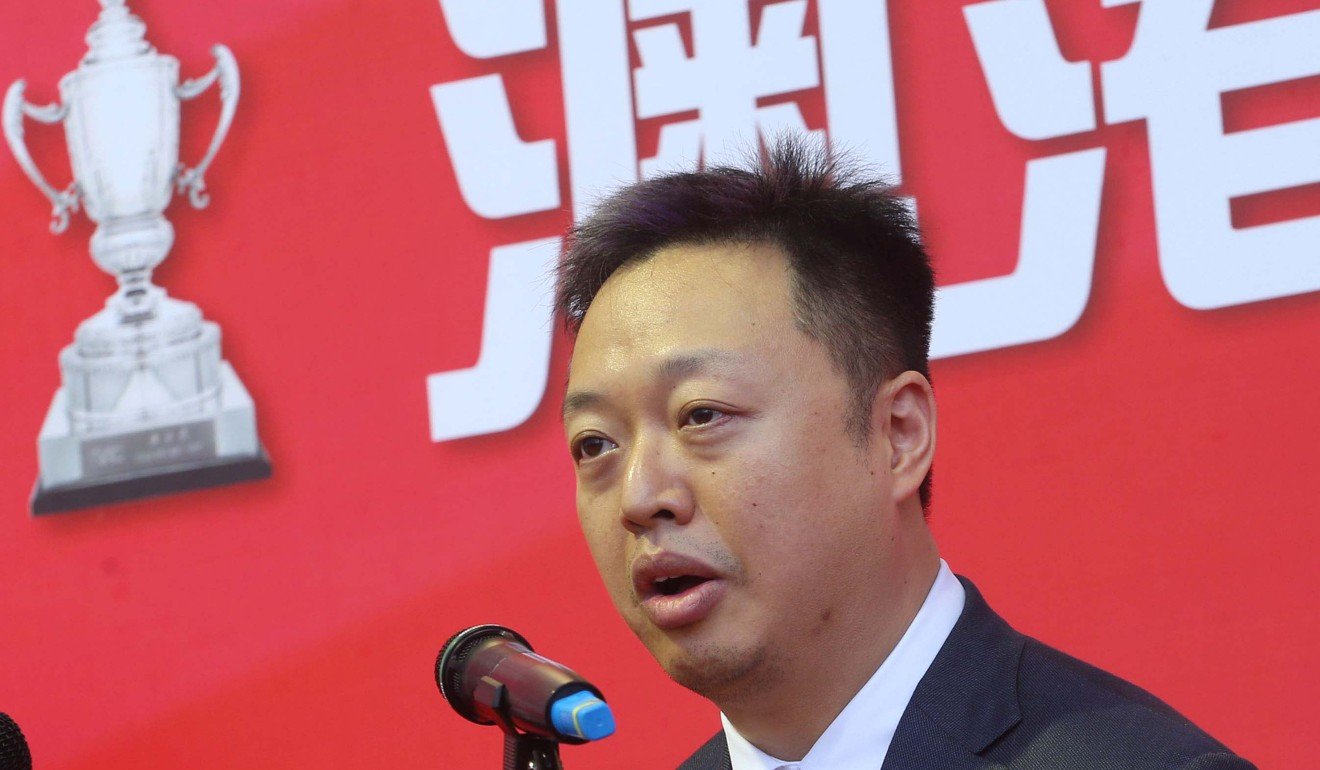
Sunday’s total hold for seven races barely scraped over 10 million patacas, the horse population has dropped to 330 and with just 57 race meetings held last season (compared to 88 in Hong Kong), the MJC has not shown a profit since 2004.
Meanwhile, in neighbouring Hong Kong, where the Jockey Club still enjoys a gambling monopoly, betting has steadily increased and on Sunday it turned over HK$237.3 million, more than 23 times the amount bet through the Macau Jockey Club.
While Macau has been relegated to poor cousin status in Asian racing, the announcement of a 24.5-year extension of the concession held by SJM Holdings, of which Ho’s fourth wife Angela Leong On-kei is executive director, now gives a glimmer of hope.
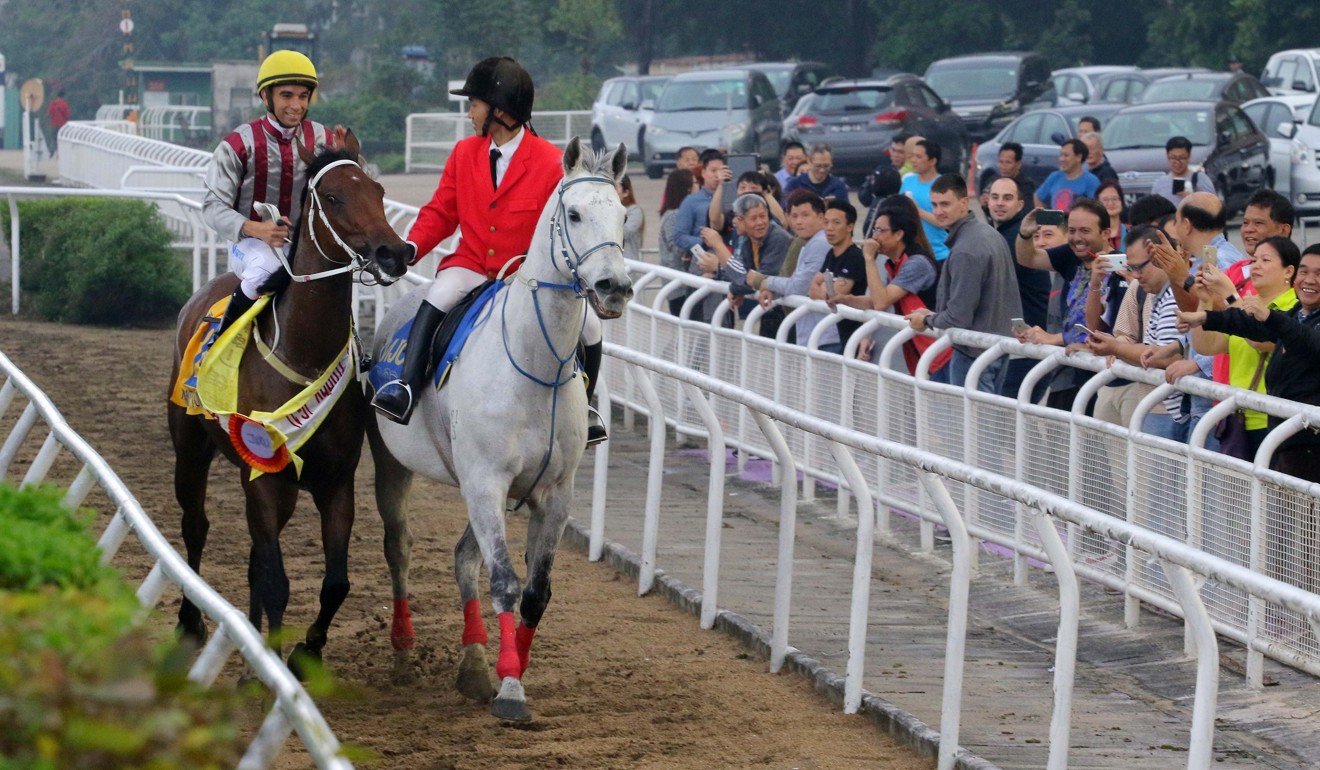
MJC chief executive Thomas Li Chu-kwan said he would not comment on rumours that a hotel or resort would be built at the track until after the group’s next board meeting, but was positive about the sport’s future, stressing that his club wasn’t trying to emulate Hong Kong.
“We want to attract tourists,” he said. “The Macau government wants to diversify gaming and we can provide that here. We want to differentiate ourselves from Hong Kong as well.
“Hong Kong is more about betting, but we are more about how to make a race day a more relaxed and enjoyable experience.”
Yet Li said the first priority for spending was renovating stabling facilities that have come under criticism.
In 2015, the South China Morning Post reported that Ho’s champion racehorse, Viva Pataca, who remains the all-time record holder for prize money won in Hong Kong with more than HK$80 million was languishing in “dungeon-like” conditions.
Later that year local champion racehorse The Alfonso suffered a deep cut to his head when a metre-long slab of concrete fell from a crumbling roof.
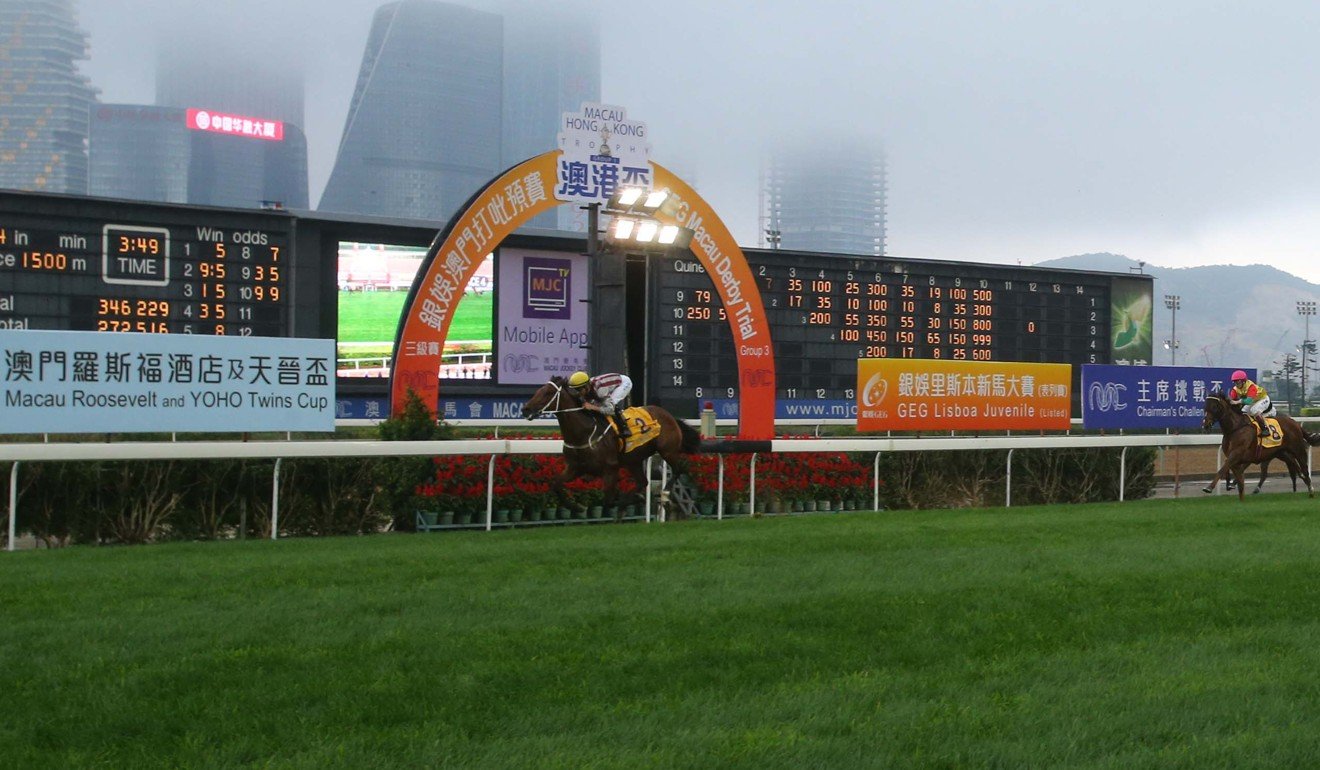
“Animal welfare is our number one priority,” Li said. “We hope to invite you later in the year to visit our new stable facilities.
“I can assure you Viva Pataca is being well looked after, he is a champion and we know people care about him.
“We have a mechanism for retired horses, and we are discussing with home affairs how to provide the best possible retirement for horses after racing.”
Anger as racing great Viva Pataca languishes in 'dungeon-like' Macau stable
It isn’t just better facilities or more prize money that trainers hope will boost the sport in Macau, but the stability provided by the new agreement that ensures racing will remain in Macau long term.
“The numbers are depleted and it is hard to encourage owners to buy horses when they only have a guarantee of a year or six months,” Allendorf said.
“Now we have more time it does give us hope. There is a lot of upside here but it’s up to us as a club to do something.
“The ball is now in our court. Before there was just uncertainty, but having the 20-plus years, well, there are no excuses now.”
